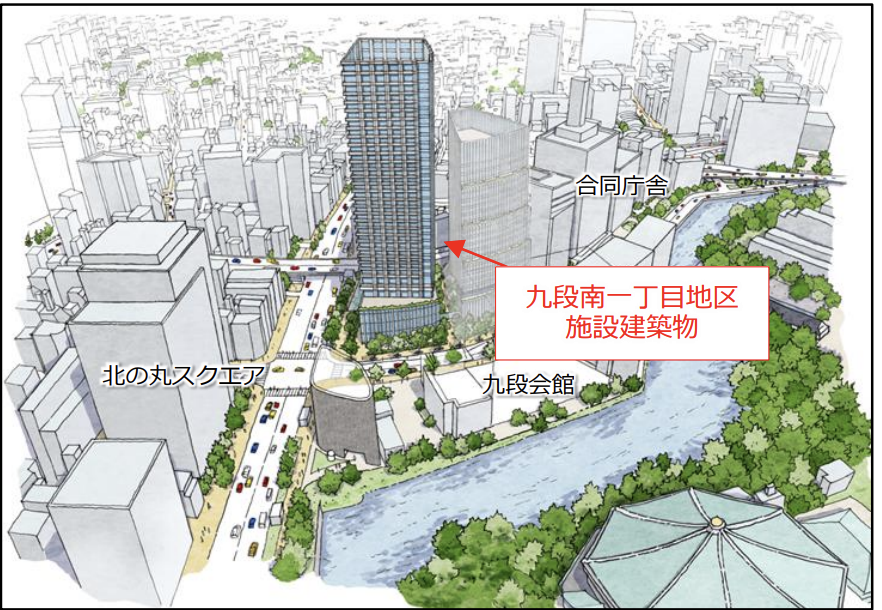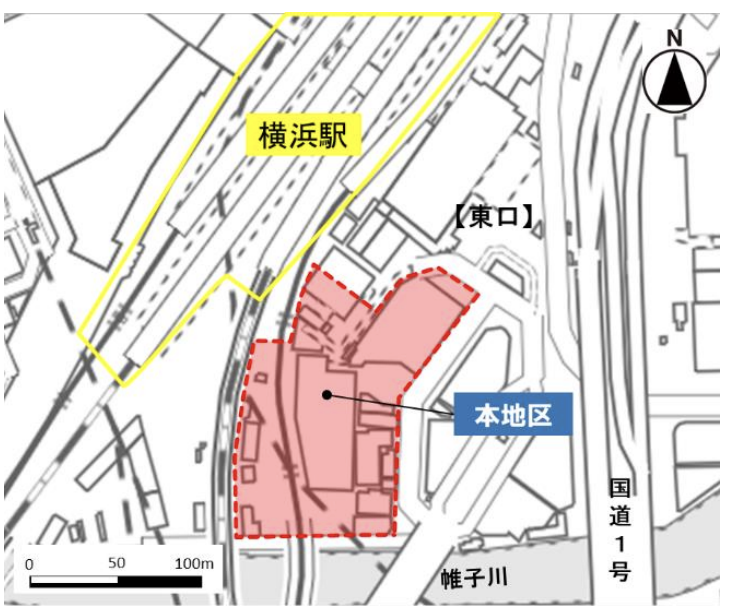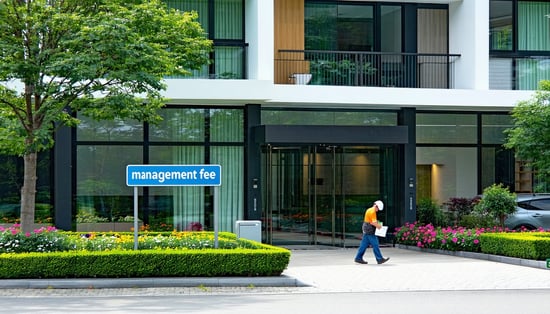Dear rental manager, have you ever woken up to a late-night phone call from a tenant saying that the air conditioner is not working or that the water heater is leaking? Self-managed rental management is one option to increase profitability, but the burden of dealing with equipment problems is greater than you might imagine. In particular, malfunctions of equipment directly related to daily life, such as air conditioners and water heaters, require prompt and appropriate responses, which can be very stressful for those without specialized knowledge.
Recent amendments to the law clarifying rent reductions for faulty equipment have further increased the burden on self-managed owners. This article explains the limitations of self-management and the specific benefits of outsourcing to a management company, with a focus on equipment problems. We propose an option for realizing secure rental management by freeing yourself from equipment failure problems that require professional judgment and quick response.
Examples of equipment problems faced by self-managed owners
Owner at a loss with air conditioner breakdown in the middle of the night
Mr. A (40s, owns 5 apartments)
On a midsummer night, Mr. A's cell phone rang. It was 2:00 am. It was an emergency call from a tenant, saying that water had leaked from the air conditioner and the room was flooded. Mr. A was in a hurry because he had to go to work the next morning, but he could not find a repair company that could handle the situation late at night, so he had no choice but to tell the tenant that he would take care of the problem tomorrow.
However, when the repairman finally visited in the evening of the next day, the resident's dissatisfaction had reached its peak. Although the problem was relatively simple - a clogged air conditioner drain hose - the failure to take appropriate initial action caused the tenant's relationship with the company to deteriorate. Furthermore, when the tenant learned that a revision to the Civil Code in 2020 allowed rent reductions in the event of equipment failure, he demanded that the rent be reduced by two days until the repairs were completed.
Owner in a panic due to water heater trouble during the year-end and New Year holidays
Case of Mr. B (50s, owns 10 apartments)
On December 31, during the busy year-end season, Mr. B received a call from several tenants that their hot water was not working. It seemed that there was some kind of problem with the building's hot water supply system, but it was difficult to arrange for a repair company because of the year-end and New Year holidays.
Mr. B had to bear not only the repair cost but also the cost of a public bath and alternative accommodations as an apology to the residents, which was an unexpected expense. In addition, the delay in responding to the situation resulted in rent reductions and penalty payments, and even led to a situation where several tenants requested to terminate their lease.
Large-Scale Damage Caused by Equipment Deterioration Could Have Been Prevented with a Professional's Eye
Example of Mr. C (60s, owns 15 apartments)
Mr. C was always enthusiastic about self-management and regularly visited his properties, but due to his lack of professional knowledge, he missed subtle abnormal noises from the water heater and small signs of deterioration in the piping. One day, a water heater on the first floor suddenly sprang a leak, causing damage that spread to the store downstairs in the middle of the night.
According to the repairman's diagnosis, the accident could have been sufficiently prevented if a professional inspection had been conducted beforehand. As a result, in addition to the cost of replacing the water heater, Mr. C was forced to pay a large amount of unexpected expenses for business compensation and interior repairs for the store downstairs. In addition, the relationship with the store tenant deteriorated, and the tenant refused to renew the lease.
Risks and Limitations of Self-Management
While self-management has the advantage of cost reduction, it also has the following risks and limitations. In particular, risks related to equipment problems can have a significant impact on the profitability of rental management.
| Risk Item | Specific details | Potential Impact |
|---|---|---|
| Expansion of legal liability | Clarification of provisions for rent reduction due to revision of the Civil Code in April 2020 | Automatic application of rent reductions in the event of equipment failure, increasing the risk of reduced revenues |
| Difficulty in providing 24-hour support | Difficulty in responding to emergency problems at night and on holidays | Decline in tenant satisfaction, increase in cancellations, and rise in vacancy rate due to deterioration of reputation |
| Lack of expertise | Inability to properly assess equipment deterioration and causes of malfunctions | Risk of major repairs due to overlooked small problems |
| Lack of repair vendor network | Difficulty in securing reliable repair companies and making prompt arrangements | Risk of secondary damage due to delayed response or inappropriate repairs |
| Inadequate periodic inspections | Oversight of statutory inspections and preventive maintenance | Risk of penalties due to non-compliance with laws and regulations, or occurrence of preventable breakdowns |
| Difficulty in cost management | Sudden repair costs and difficulties in budget management | Shortage of funds and management instability due to deviation from profit plan |
Risk of rent reduction for equipment failure due to civil code revision
Due to a revision of the Civil Code in April 2020, rent reductions will be allowed in the event of equipment failure in leased properties. This is a major change, as the rent will be automatically reduced according to the degree of defective equipment, without the tenant having to request a reduction as in the past.
For example, if an air conditioner breaks down in the middle of summer, the tenant can claim a rent reduction based on a "decrease in the value of use. According to the Japan Rental Housing Management Association's "Guidelines for Rent Reduction Due to Failure of Rental Rooms and Equipment," a maximum rent reduction of 20% is expected in the case of an air conditioner failure, and a maximum rent reduction of 30% is expected in the case of a water heater failure.
Realistic Time Burden of Self-Management
In addition to dealing with equipment problems, the self-managing owner must also handle a wide variety of other tasks, including the following
- Regular building and facility inspections and maintenance
- Responding to tenant inquiries 24 hours a day
- Liaison and coordination with various contractors and attending to repairs
- Conducting statutory inspections and maintaining records
- Establishment of facility renewal plans and budget management
In particular, the time burden of dealing with equipment problems is unpredictable and can have a significant impact on one's core business and family life. For owners of multiple properties, such as apartments, this burden is doubled.
Need for expertise and difficulty in making decisions
Properly responding to air conditioner and water heater malfunctions requires the following specialized knowledge
- Understanding the characteristics of each type and model of equipment
- Ability to identify the cause of the malfunction and determine the level of urgency
- Determining the appropriate repair method and timing of replacement
- Understanding the scope of legal liability and repair obligations
- Judging the cost-effectiveness of preventive and reactive maintenance.
It is difficult for self-managed owners to possess all of this expertise, which increases the risk of excessive repair costs due to errors in judgment or , conversely, large-scale problems due to postponement of necessary repairs.
Specific Advantages of Outsourcing to a Management Company
Outsourcing to a management company can solve many of the problems associated with facility troubles. Below are some specific advantages:
24/7/365 facility emergency response system
Many management companies have a 24-hour call center that can respond quickly to equipment problems late at night or on holidays. This allows for quick response to any emergency calls from tenants:
- The management company receives the first emergency call from the tenant
- Appropriate determination of the nature of the problem and instructions by professional staff
- Prompt dispatch of affiliated repairmen and problem resolution
- Appropriate reporting of the response status to the owner
For example, owners will no longer have to deal with emergencies directly related to their daily lives, such as air conditioner breakdowns or water leaks in the middle of the night. The 24-hour support system of a typical management company has the effect of increasing tenant satisfaction and significantly reducing the risk of cancellation.
Preventive management by staff with expertise
Management companies have staff with expertise in facilities, enabling them to provide preventative management, including
- Early detection of abnormalities through regular building and facility inspections
- Planned renewal proposals considering the useful life of facilities
- Appropriate implementation of statutory inspections and record management
- Implementation of preventive maintenance before the season
For example, inspections and cleaning of air conditioners before the season of use and periodic inspections of water heaters can prevent breakdowns before they occur. This reduces the occurrence of unexpected repair costs and facilitates systematic financial planning.
Legal Risk Management and Rent Reduction
The management company is familiar with the latest legal amendments and precedents, and provides support to minimize legal risks:
- Appropriate rent reduction decisions and handling in the event of equipment failure
- Proposing appropriate measures within the scope of repair obligations
- Appropriate communication with tenants to prevent problems
- Appropriate recording and management of repair history
Due to the revision of the Civil Code in 2020, rent reductions due to facility failures are now allowed as a matter of course. This allows us to respond appropriately to requests for excessive rent reductions.
Reliable network of repair companies
The management company has a network of reliable repairmen based on many years of experience:
- Quick response to emergency situations
- Cost containment by implementing repairs at reasonable prices
- Guarantee of repair quality and follow-up in the event of a malfunction
- Selection of contractors familiar with local characteristics
With self-management, it is difficult to find reliable contractors and there is a risk of being charged high repair costs.
Cost savings and cost-effectiveness
At first glance, outsourced management fees may seem like an additional cost, but the following long-term cost savings can be realized:
| Item | In case of self-management | In case of outsourcing to a management company |
|---|---|---|
| Equipment trouble support | Expensive repair costs due to individual response | Repair at a reasonable price by affiliated companies |
| Preventive maintenance | Risk of major repairs due to oversight | Only small-scale repairs are required due to early detection |
| Tenant satisfaction | Risk of cancellation due to delayed response | Longer tenancy due to quick response |
| Risk of rent reduction | Significant reduction due to delay in appropriate response | Minimal reduction due to appropriate initial response |
| Time cost | Owner's own time burden | Enables owners to have more time for their main job and family |
Typical outsourced management costs are about 3-5% of rent income, but considering the cost reductions described above, it can be said to be an expenditure with a high return on investment in real terms.
Key Points in Selecting a Management Company
Selecting the right management company will directly affect the quality of the response to facility troubles. Select a reliable management company by referring to the following points:
Check the system for dealing with facility problems.
- Availability of a 24-hour call center
- Emergency response flow and average response time
- Quality and number of affiliated repair companies
- Availability of staff specializing in facilities
The nighttime and holiday response system is particularly important. It is a good idea to ask for specific examples of actual responses.
Transparency and details of management fees
The details of outsourcing fees vary from management company to management company. Make sure to clearly confirm the following points:
- Services included in the basic management fee
- Separately charged services and their fee structure
- Management company commission rates for repair work
- Whether or not there is a contract renewal fee and how much it is
The general market rate for management consignment fees is approximately 3-5% of rent income, but it is important to carefully compare and consider the services included.
Check the track record and examples of correspondence
To determine whether a company is a reliable management company, it is advisable to check the following points:
- Number of years of management experience and number of units managed
- Track record of managing properties of similar size and type
- Past cases of facility problems and how they were resolved
- Track record of dealing with tenant satisfaction and complaints
In particular, you can determine the management company's ability to handle problems by asking for several specific examples of how they have handled facility problems.
Evaluate the quality of communication
The quality of communication is important for building a good management relationship:
- The politeness and expertise of the person in charge
- Content and frequency of regular reports
- Ability to make suggestions and provide information to the owner
- Emergency contact system and speed of reporting
Compatibility with the person in charge is particularly important, and it is advisable to judge communication skills through the speed and accuracy of answers to questions and easy-to-understand explanations of technical terms.
Summary: Outsourcing to a management company is a safe investment in rental management
We have explained the limitations of self-management and the advantages of outsourcing to a management company, with a particular focus on problems with air conditioners, water heaters, and other equipment. Here we summarize the important points:
- Limitations of self-management : There are various limitations to self-management, such as the difficulty of responding to equipment problems 24 hours a day, errors in judgment due to lack of expertise, and difficulty in selecting appropriate contractors.
- Increased legal risk: The 2020 revision of the Civil Code clarifies the reduction of rent in the event of equipment failure, increasing the risk for self-managed owners.
- Advantages of outsourcing to a management company: There are many advantages to outsourcing, including 24-hour response time, support from expertise, legal risk management, and use of a network of excellent contractors.
- Cost-effectiveness: Management fees of 3-5% of rental income are well worth the investment when considering the reduced cost of troubleshooting, reduced repair costs through preventative maintenance, and reduced vacancy risk through improved tenant satisfaction.
Switching from self-management to outsourcing to a management company is not just a cost increase, but an investment in secure rental management. The value is even greater when you consider the response to problems with air conditioners, hot water heaters, and other equipment. Having a professional and reliable management system in place will free up your time and allow you to focus on more strategic management of your rental properties.
Frequently Asked Questions
Q1: If I outsource to a management company, will they handle all facility problems?
A: Basically , a management company will take care of problems with air conditioners, water heaters, and other equipment that comes with the building. However, in the case of equipment installed by the resident himself/herself or malfunctions caused by intent or negligence, the resident may be required to pay for the trouble. We recommend that you clarify the scope of response at the time of contract.
Q2: What is the typical management fee as a percentage of rent income?
A: Generally , the market rate for outsourced management fees is approximately 3-5% of rent income. However, the services included vary from management company to management company, so it is important to consider not only the simple rate, but also the quality and scope of the services provided. In particular, check the level of 24-hour service and facility trouble support.
Q3: How often are legal inspections required?
A: There are several statutory inspections for rental properties, each with a specific frequency. For example, fire equipment inspections are generally conducted twice a year, simple private water supply inspections once a year, and periodic building equipment inspections once a year. When outsourcing to a management company, these statutory inspections are managed on your behalf, from scheduling to implementation and report submission, greatly reducing the burden of legal compliance.
Q4: What is the procedure for switching from self-management to outsourced management?
A: Switching to outsourced management is relatively easy. First, you will sign a management agreement with the management company, notify tenants, change the rent payment address, and take over the keys and drawings of the property. Many management companies will assist you with these procedures, and we recommend that you consult with them about the timing and specifics of the switchover process.
Q5: Are facility repair costs included in the management consignment fee?
A: Normally , the basic management fee does not include the cost of repairing equipment. If repairs become necessary, the management company will provide an estimate, and repairs will be made only after receiving the owner's approval. However, some management companies offer a "minor repair service" for small-scale repairs (e.g., less than 10,000 to 20,000 yen) without prior notice to the owner. It is important to clarify these conditions before signing a contract.
Reference information
- Japan Rental Housing Management Association "Guidelines for Rent Reduction due to Defects in Rental Rooms and Facilities
- Ministry of Land, Infrastructure, Transport and Tourism "Guidelines for Rental Housing Management Services
- Standard Contract for Rental Housing Management
In rental management, it is very important to improve tenant satisfaction and maintain asset value. Problems with air conditioners, hot water heaters, and other equipment are inevitable, but with proper professional handling, they will not develop into major problems. If you feel the limitations of self-management or are worried about dealing with equipment problems, please consider outsourcing to a management company.
INA&Associates offers comprehensive management services, including facility troubleshooting, and is equipped with a 24-hour/365-day emergency response system to protect your valuable assets and contribute to tenant satisfaction. Please feel free to contact us for a free consultation. We will help you manage your rental property with peace of mind.

Daisuke Inazawa
Representative Director of INA&Associates Inc. Based in Osaka, Tokyo, and Kanagawa, he is engaged in real estate sales, leasing, and management. He provides services based on his extensive experience in the real estate industry. Based on the philosophy that “human resources are a company's most important asset,” he places great importance on human resource development. He continues to take on the challenge of creating sustainable corporate value.

.png)













